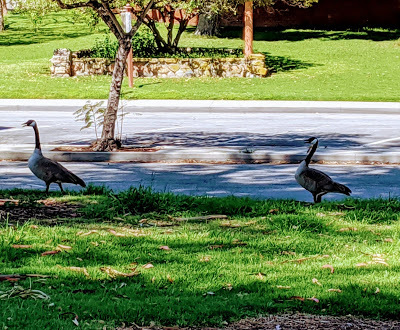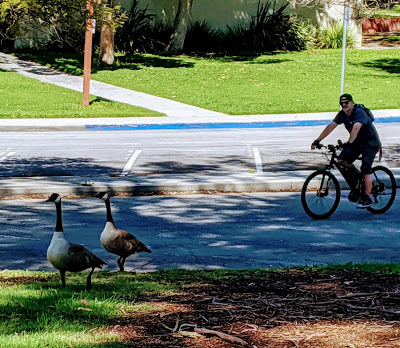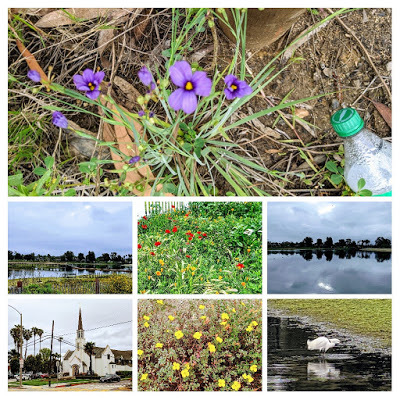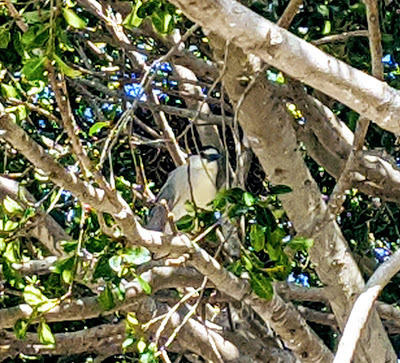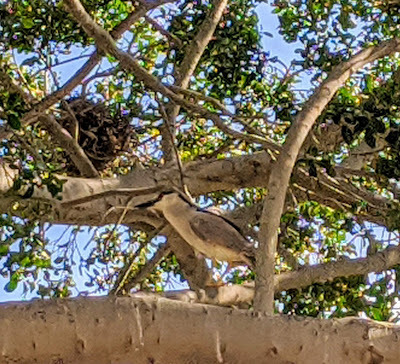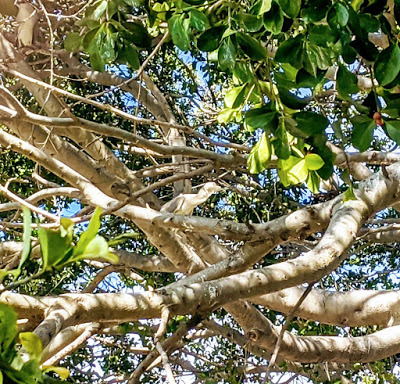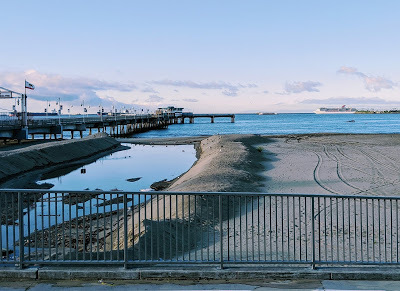R.L. Swihart's Blog, page 105
April 17, 2020
ESSAYS: BENJAMIN ON KAFKA
Let us consider the village at the foot of Castle Hill whence K.’s alleged employment as a land surveyor is so mysteriously and unexpectedly confirmed. In his Postscript to The Castle Brod mentioned that in depicting this village at the foot of Castle Hill Kafka had in mind a specific place, Zürau in the Erz Gebirge. We may, however, also recognize another village in it. It is the village in a Talmudic legend told by a rabbi in answer to the question why Jews prepare a festive evening meal on Fridays. The legend is about a princess languishing in exile, in a village whose language she does not understand, far from her compatriots. One day this princess receives a letter saying that her fiancé has not forgotten her and is on his way to her. The fiancé, so says the rabbi, is the Messiah; the princess is the soul; the village in which she lives in exile is the body. She prepares a meal for him because this is the only way in which she can express her joy in a village whose language she does not know. This village of the Talmud is right in Kafka’s world. For just as K. lives in the village on Castle Hill, modern man lives in his body; the body slips away from him, is hostile toward him. It may happen that a man wakes up one day and finds himself transformed into vermin. Exile—his exile—has gained control over him. The air of this village blows about Kafka, and that is why he was not tempted to found a religion. The pigsty which houses the country doctor’s horses; the stuffy back room in which Klamm, a cigar in his mouth, sits over a glass of beer; the manor gate, to knock against which brings ruin—all these are part of this village. The air in this village is not free of all the abortive and overripe elements that form such a putrid mixture. This is the air that Kafka had to breathe all his life. He was neither mantic nor the founder of a religion. How was he able to survive in this air?
*
Compare this early diary entry: "In order to be as heavy as possible, which I believe to be an aid to falling asleep, I had crossed my arms and put my hands on my shoulders, so that I lay there like a soldier with his pack.” Quite palpably, being loaded down is here equated with forgetting, the forgetting of a sleeping man. The same symbol occurs in the folksong “The Little Hunchback.” This little man is at home in distorted life; he will disappear with the coming of the Messiah, of whom a great rabbi once said that he did not wish to change the world by force, but would only make a slight adjustment in it. When I come into my room, My little bed to make, A little hunchback is in there, With laughter does he shake. This is the laughter of Odradek, which is described as sounding “something like the rustling in falling leaves.” When I kneel upon my stool And I want to pray, A hunchbacked man is in the room And he starts to say: My dear child, I beg of you, Pray for the little hunchback too. So ends the folksong. In his depth Kafka touches the ground which neither “mythical divination” nor “existential theology” supplied him with. It is the core of folk tradition, the German as well as the Jewish. Even if Kafka did not pray—and this we do not know—he still possessed in the highest degree what Malebranche called “the natural prayer of the soul”: attentiveness. And in this attentiveness he included all living creatures, as saints include them in their prayers.
Published on April 17, 2020 08:07
Plague Pics [4/17/20]
Published on April 17, 2020 08:03
April 12, 2020
Without Lifting A Finger: Antonio Ciseri's "The Transport of Christ to the S...
Without Lifting A Finger: Antonio Ciseri's "The Transport of Christ to the S...: I found this in the Madonna del Sasso (Locarno): Antonio Ciseri's "The Transport of Christ to the Sepulcher" [From W...
Published on April 12, 2020 13:07
Without Lifting A Finger: Dribble Dribble: My Locarno
Without Lifting A Finger: Dribble Dribble: My Locarno: Our next big stop was Locarno, Switzerland (on the northern tip of Lago Maggiore). Of course I had to go to the Ticino largely because of Ma...
Published on April 12, 2020 13:04
EASTER COLLAGE [4.12.20]
Published on April 12, 2020 10:43
April 11, 2020
Plague Pics [4/11/20]
Published on April 11, 2020 11:12
SEEMINGLY APROPOS QUOTE FROM THE BIG K ...
Almost passed it by (I was heading to the "real" text of Benjamin's Illuminations and it was at the end of the intro): a great (essential) Kafka quote. Can't believe I didn't post it already (maybe I did), can't believe I didn't drown it in yellow or underscore it a score of times in the hardcopy (maybe I'll look eventually).
*
“Anyone who cannot cope with life while he is alive needs one hand to ward off a little his despair over his fate . . . but with his other hand he can jot down what he sees among the ruins, for he sees different and more things than the others; after all, he is dead in his own lifetime and the real survivor.” —Franz Kafka, DIARIES, entry of October 19, 1921
Published on April 11, 2020 11:02
April 9, 2020
Plague Companions: Canada Geese
They've been around a while. Mostly on the edge of the lagoon. The other night they tried to get in a round of golf for free (the course is closed, but I guess they "walked on"?). No balls. No clubs. They spent most of the time around the sand traps.
*
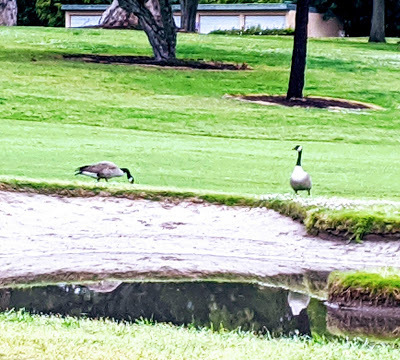
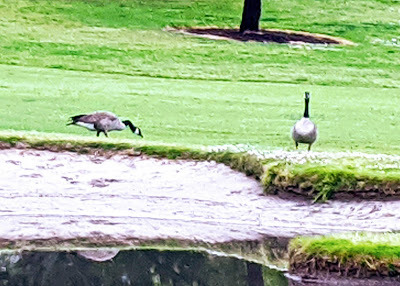
*


Published on April 09, 2020 08:25
"Clips" from Benjamin's "Reflections"
Stated more briefly and dialectically, this means that the sphere of poetry was here explored from within by a closely knit circle of people pushing the “poetic life” to the utmost limits of possibility. And they can be taken at their word when they assert that Rimbaud’s Saison en enfer no longer had any secrets for them. For this book is indeed the first document of the movement (in recent times; earlier precursors will be discussed later). Can the point at issue be more definitively and incisively presented than by Rimbaud himself in his personal copy of the book? In the margin, beside the passage “on the silk of the seas and the arctic flowers,” he later wrote, “There’s no such thing.”
*
The reader, the thinker, the loiterer, the flâneur, are types of illuminati just as much as the opium eater, the dreamer, the ecstatic. And more profane. Not to mention that most terrible drug—ourselves—which we take in solitude.
Published on April 09, 2020 08:17
April 4, 2020
"Clips" from Gaston Leroux's "The Mystery of the Yellow Room"
"That," I said, "is why this mystery is the most surprising I know. Edgar Allan Poe, in 'The Murders in the Rue Morgue,' invented nothing like it. The place of that crime was sufficiently closed to prevent the escape of a man; but there was that window through which the monkey, the perpetrator of the murder, could slip away!"
*
You writers forget that what the senses furnish is not proof. If I am taking cognisance of what is offered me by my senses I do so but to bring the results within the circle of my reason. That circle may be the most circumscribed, but if it is, it has this advantage—it holds nothing but the truth! Yes, I swear that I have never used the evidence of the senses but as servants to my reason. I have never permitted them to become my master. They have not made of me that monstrous thing,—worse than a blind man,—a man who sees falsely. And that is why I can triumph over your error and your merely animal intelligence, Frederic Larsan.
Published on April 04, 2020 09:40



